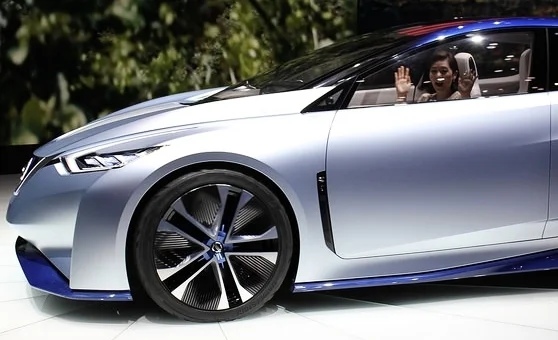The reality of autonomous vehicles became a little more real last week when the US House of Representatives unanimously passed legislation that will make it significantly easier for automakers to get self driving technology on the road. As Reuters reported, The Safely Ensuring Lives Future Deployment and Research in Vehicle Evolution Act, also known as the SELF DRIVE Act, was passed by a two-thirds majority on Wednesday, September 6, 2017. The bill was passed with bipartisan support, and is actually one of the most agreed upon pieces of legislation in Congress. The bill now goes to the Senate, where lawmakers have been working on a similar piece of legislation. It is the first significant piece of legislation of its kind.
The bill speeds up the deployment of self driving cars onto the streets by reducing regulations for automakers. Essentially, it provides exemptions for standards “normal” cars would have to meet before seeing the streets. According to Wired, if the bill becomes law, federal guidelines will determine what standards autonomous vehicles have to meet, and individual states will have very little power to block self driving cars from hitting the road. The National Highway Traffic Safety Administration will be the organization to regulate vehicle design, construction, and performance. Manufacturers will then need to prove that self driving cars are as safe as existing vehicles. States can still set regulations regarding licensing, registration, and insurance, but they will have very little (if any) say as to what goes inside of the car. The legislation will allow for 25,000 autonomous vehicles to hit the road in the first year, which automakers hope will be 2020. This cap will increase drastically, allowing for 100,000 autonomous vehicles to be on the streets by the third year.
The tech industry, which is normally opposed to government regulation, is actually very welcoming of this bill. Up until this point, there were no federal guidelines regarding autonomous technology. This is due in part to the fact that there really aren’t that many autonomous vehicles in existence, so nobody is quite sure how to regulate them. As a result, states were left to set their own standards. This became a source of confusion as different states had different definitions, priorities, and purposes regarding self driving vehicles, making for a wide variety of guidelines throughout the country. As automakers would like their vehicles to be driven in all states, regulations that change across state lines would make this difficult. Additionally, companies based in California claimed their state had some of the most restrictive guidelines, making it difficult for them to test their technology.
As such, automakers, as well as business groups, and advocates for the blind have been heavily pushing for legislation such as this. Companies such as Volkswagen even began taking self driving cars to Washington D.C., having lawmakers test them out in the hope that it could help persuade them. These groups claim that self driving cars will make roads safer by reducing the amount of accidents caused by human error. Consumer advocate groups, on the other hand, have pushed back on the legislation, as they fear it is too lenient, doesn’t do enough to protect drivers, and will actually make roads more dangerous.
This legislation will be hitting a little closer to home, as U.S. Secretary of Transportation Elaine Chao will be in Ann Arbor, Michigan to unveil new self driving guidelines on September 19th. As The Michigan Law Firm, PLLC blog previously discussed, Ann Arbor is a hub of autonomous vehicle technology, as it is home to the self driving playground known as MCity.
Having autonomous technology legislation unanimously passing the house is an exciting step forward for autonomous vehicles. Making it easier for car manufacturers to get self driving cars on the roads means they are one step closer to being a part of everyday life. However, as self driving cars become a reality, so do the new safety challenges they present. As a result, manufacturers, and lawmakers will be responsible for balancing driving innovation with driver safety. After all, autonomous or human controlled, no one wants to be involved in a car crash.
Car accidents happen everyday, and although self driving vehicles looming on the horizon, motor vehicle accidents are still possible in the present day. If you have been injured in a car accident, call The Michigan Law Firm, PLLC at 844.4MI.FIRM for a free legal consultation.






